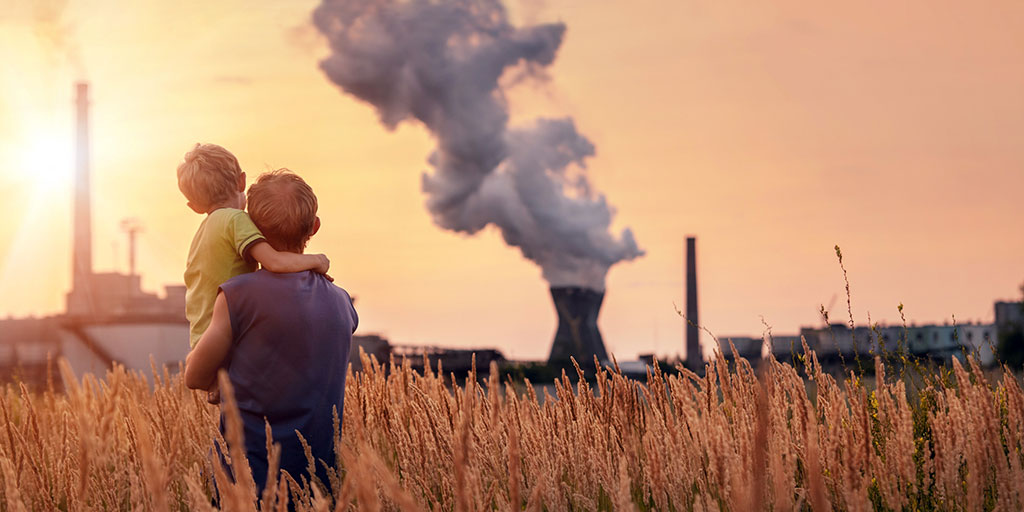Health Consequences of Air Pollution on Population

High levels of air pollution can be harmful to your health. It can cause lung cancer, heart disease, asthma, and respiratory infections. Air pollution exposure has been linked to a variety of diseases and health problems. People who are already sick are more at risk of polluted air. People living under the poverty line are more vulnerable to increased risk of air pollution due to lack of medical facilities and the money to buy medicines.
What is PM, or particulate matter?
The most dangerous pollutants in the air are tiny PM 2.5 particles that get deep inside your lungs and are ultimately linked to premature mortality. The word PM refers to “particulate matter” which are airborne particles that come in the form of dust, dirt, smoke, or in the form of liquid droplets. Diesel cars and coal-fired power stations are two common sources that release high amounts of particulate matter into the air. The smaller the particulate matter, the higher is the risk, as Particulate matter smaller than 2.5 micrometers is small enough to lodge deeply into the lungs.
What steps can people take to protect themselves?
Everyone should take an initiative to fight air pollution. We all need to work together and much harder to reduce air pollution in our towns and cities, therefore it is essential to make coordinated efforts with the active participation of states and sectors.
The government must make an effort to lower emissions by establishing international air quality standards. They should encourage investment in clean air and pollution research and education. While the public must individually take initiative for a sustainable and healthy environment.
Common Health Conditions Caused by Air Pollution
Cardiovascular Conditions
There is clear evidence that pollution raises the risk of cardiovascular disease. When the contaminants enter the bloodstream, they can result in heart and blood vessel irritation and damage. According to studies, breathing in contaminated air increases the risk of having a heart attack, a stroke, and other types of heart disease.
Cancer
Cancer is the most common illness caused by air pollution. It is caused by exposure to airborne carcinogens which are found in fossil fuels. Lung cancer is the most common type of cancer caused by air pollution. About 80% of people suffer from lung cancer which is caused by exposure to air pollution.
Neurological Conditions
Air pollution is also known to cause a variety of Neurological disorders such as Alzheimer’s disease and Parkinson’s disease. According to studies, air pollution can accelerate the progression of Alzheimer’s disease. There is evidence that air pollution raises the risk of Parkinson’s disease.
Gastrointestinal Disorders
Irritable bowel syndrome and ulcerative colitis are two gastrointestinal conditions that have been linked to air pollution. Constipation, bloating, diarrhea, and abdominal pain are all signs of gastrointestinal problems. According to studies, those who reside in places with high air pollution levels are more prone to these diseases.
Kidney Problems
Air pollution can lead to several kidney conditions, like chronic renal disease and acute kidney injury. These kidney conditions develop when there are high levels of toxins in the body, which may be absorbed through the pollution in the air.
Liver Conditions
The buildup of fat in the liver, which can cause inflammation and scarring, is known as fatty liver disease. A higher incidence of fatty liver disease caused by metabolic dysfunction is linked to air pollution exposure.
Erection problems
PM2.5 is also sometimes considered to be the cause of ED. Inflammation, endothelial dysfunction, and atherosclerosis are linked to exposure to PM2.5. These conditions may lead to ED of vascular origin through both veno-occlusive and arteriogenic routes. Though you can recover from ED by taking ED medicines such as Fildena or Tadalista, it is always best to avoid harmful pollutants in the air.
Skin Diseases
Skin diseases such as eczema, psoriasis, and acne are directly linked with air pollution. Some skin allergies are also caused by toxic contaminants in the air.
A persistent inflammatory disease called psoriasis is also caused by pollutants that flare ups of psoriasis.
Asthma
Asthma is a condition that causes wheezing, coughing, and shortness of breath. This condition is directly linked to air pollution and millions of [people suffer from it in India. Long-term exposure to airborne contaminants can increase the risk of asthma in the population.
What actions can India take to lessen air pollution?
The implementation of waste management, implementation of industrial emissions reductions, setting modern standards for pollution control, the provision of access to clean cookstoves, and household fuels, the growth of the market for renewable energy sources, and individual effort can help reduce pollution and create a clear environment.



